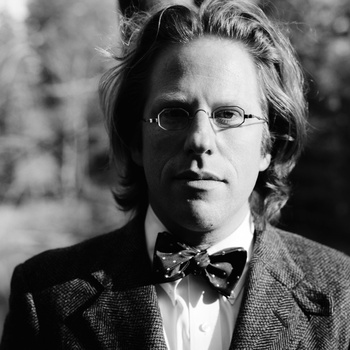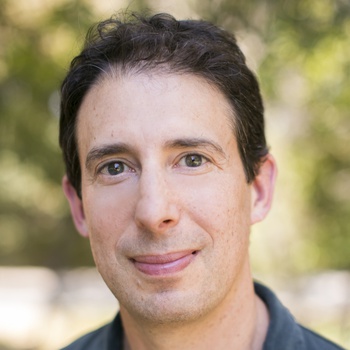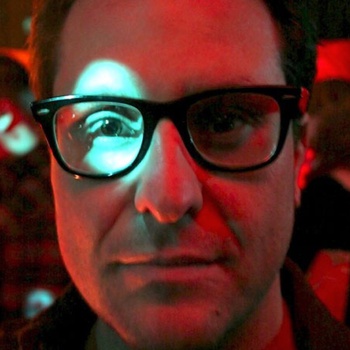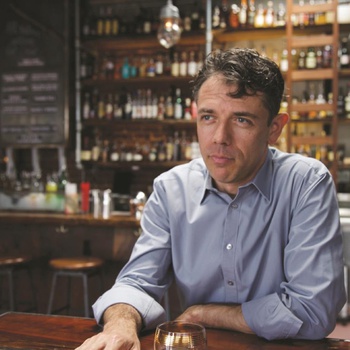Envisioning Deep Time
Jonathon Keats

April 7, 02015
Philosophical inquiry and scientific absurdism meet in the conceptual precision and ice dry wit of Jonathon Keats. In his talk at The Interval, Keats discussed his forays into very long-term photography and other deep time projects. He also announced a site-speciific collaboration with The Long Now Foundation that will create a long-term art work on our Mt. Washington property in Eastern Nevada.
As an experimental philosopher and conceptual artist, Jonathon Keats has applied general relativity to time management, personalized the metric system, sold real estate in the higher dimensions of spacetime, and epigenetically resurrected historical figures including George Washington and Jesus Christ. Those are some of the projects he touches on in this talk.
Currently Keats is building pinhole cameras of his own design with exposure times of 100 and 1,000 years to document long-term change in cities from San Francisco to Berlin. The Berlin century cameras debuted in 02014. Each person who secretly installed one will eventually inform a child of its location. In 02114 that child is responsible for retrieving the finished photo and returning the camera to the gallery. Where they can get their deposit back. The first millennium camera was installed recently at the Arizona State University Art Museum.
But his next time art project is five times as ambitious. Keats reveals for the first time in this talk a project to turn bristlecone pines into calendars--living calendars. Bristlecones live up to 5000 years, so they are unique in the duraton they track time through dendrochronology. The artist needed to find a place where these ancient trees are already growing that would work with him to create this project. And happily we at Long Now could do just that. The story of the Centuries of Bristlecone will be a long time in telling. But stay tuned.
A conceptual artist and experimental philosopher, Jonathon Keats' work has included personalizing the metric system, copyrighting his own mind, applying general relativity to time management, and attempting to genetically engineer God. Recently he opened the shutter on his first millennium-long photograph. Co-sponsored by The ZERO1 Art & Technology Network. From April 02015.
Upcoming Talks
Videos

Johanna Hoffman
Speculative Futures: Design Approaches to Foster Resilience and Co-create the Cities We Need
October 12, 02022

Creon Levit
Space Debris and The Kessler Syndrome: A Possible Future Trapped on Earth
April 26, 02022

Brittany Cox
Horological Heritage: Generating bird song, magic, and music through mechanism
August 20, 02019

Elizabeth Lonsdorf
Growing Up Ape: The Long-term Science of Studying Our Closest Living Relatives
April 30, 02019

James Holland Jones
The Science of Climate Fiction: Can Stories Lead to Social Action?
January 29, 02019

Kevin Kelly, Stewart Brand, Alexander Rose
Siberia: A Journey to the Mammoth Steppe
January 22, 02019

Caroline Winterer
The Art and Science of Deep Time:
Conceiving the Inconceivable in the 19th Century
September 4, 02018

Esther Dyson
The Short Now: What Addiction, Day Trading, and Most of Society’s Ills Have in Common
July 17, 02018

Hannu Rajaniemi
The Spirit Singularity: Science and the Afterlife at the Turn of the 20th Century
July 10, 02018

Shahzeen Attari
Facts, Feelings and Stories: How to Motivate Action on Climate Change
June 26, 02018

Renée DiResta
Disinformation Technology: How Online Propaganda Campaigns Are Influencing Us
April 10, 02018

Scott Kildall
Art Thinking + Technology: A Personal Journey of Expanding Space and Time
August 15, 02017

Miles Traer
The Geological Reveal: How the Rock Record Shows Our Relationship to the Natural World
June 27, 02017

Andrew Lakoff
How We Became “Unprepared”:
Imagining Catastrophe from the Cold War to Bird Flu
May 30, 02017

Jennifer Petersen
Why Freedom of Speech Is More Than Speech:
Expressions in Media and Code
April 18, 02017

Tara Behrend
The Psychology of Surveillance:
How Being Watched Changes Our Behavior
February 28, 02017
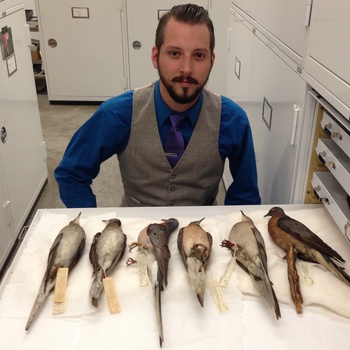
Ben Novak
The Next Flight of the Passenger Pigeon: Engineering Nature's Engineers
September 27, 02016


